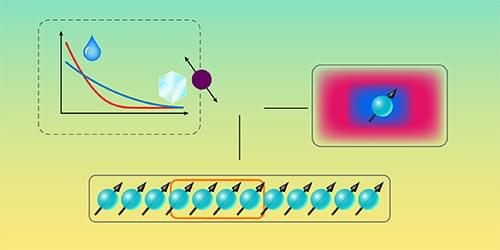In the Mpemba effect, a warm liquid freezes faster than a cold one. Three studies investigate quantum versions of this effect, challenging our understanding of quantum thermodynamics.
Under certain conditions, warm water can freeze faster than cold water. This phenomenon was named the Mpemba effect after Erasto Mpemba, a Tanzanian high schooler who described the effect in the 1960s [1]. The phenomenon has sparked intense debates for more than two millennia and continues to do so [2]. Similar processes, in which a system relaxes to equilibrium more quickly if it is initially further away from equilibrium, are being intensely explored in the microscopic world. Now three research teams provide distinct perspectives on quantum versions of Mpemba-like effects, emphasizing the impact of strong interparticle correlations, minuscule quantum fluctuations, and initial conditions on these relaxation processes [3– 5]. The teams’ findings advance quantum thermodynamics and have potential implications for technologies, ranging from information processors to engines, powered by quantum resources.
In top-down strategies, physicists use observations of macroscopic (classical) phenomena to infer fundamental microscopic (quantum) processes; in bottom-up strategies, they use studies of those fundamental processes to predict classical phenomena. Historically, studies of the Mpemba effect began with empirical observations and ad hoc assumptions about the microscopic world. Despite descriptions of the effect by Aristotle and Descartes, and modern attention from Mpemba, the phenomenon has not influenced the field of thermodynamics. The Mpemba effect is complex, lacks a precise definition, and has reproducibility issues. As a result, experimental observations and explanations have been debated for decades without consensus, making the effect often seem like just a curiosity.
